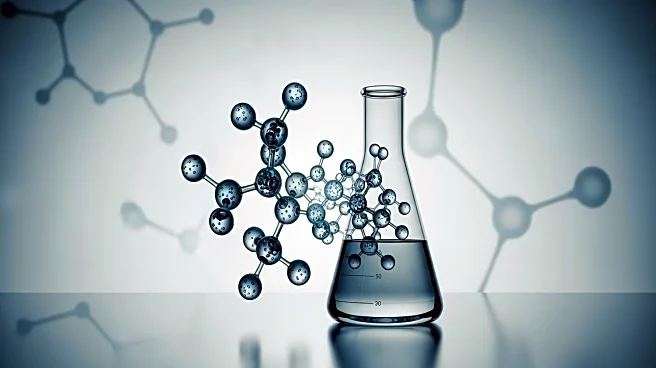What is the story about?
What's Happening?
A review led by Dr. Yong Jiang highlights the potential of biohybrid systems in sustainable chemical synthesis. These systems integrate living microbial cells with advanced materials science to produce chemicals efficiently and cleanly. By leveraging renewable energy sources like solar and mechanical energy, biohybrids facilitate electron transfer processes that convert simple feedstocks into valuable compounds. The review emphasizes microbial electrosynthesis (MES), which uses biohybrid electrodes to fix CO2 into commercially relevant chemicals under ambient conditions. Recent advances include formate-mediated tandem catalysis, enhancing MES efficiency by using formate as an electron shuttle.
Why It's Important?
Biohybrid systems represent a significant shift towards greener industrial processes, offering a sustainable alternative to traditional chemical manufacturing. By utilizing renewable energy and reducing carbon footprints, these systems could transform industries reliant on petrochemical processes. The integration of biology and materials science in biohybrids promises to enhance reaction efficiency and specificity, potentially leading to widespread adoption in various sectors, including energy, environment, and chemical production.
What's Next?
Future research will focus on optimizing electron and energy transfer mechanisms within biohybrid systems to improve efficiency and stability. Interdisciplinary collaboration will be crucial in advancing synthetic biology tools to expand the range of products biohybrids can produce. Life cycle assessments and techno-economic analyses will guide the scalability and industrial application of these systems, paving the way for a resilient and low-carbon chemical industry.
Beyond the Headlines
Biohybrids could revolutionize environmental protection by harnessing untapped energy modalities like magnetic and thermal inputs. This approach may lead to off-grid applications, such as industrial wastewater remediation and soil carbon sequestration, further enhancing sustainability efforts.
















